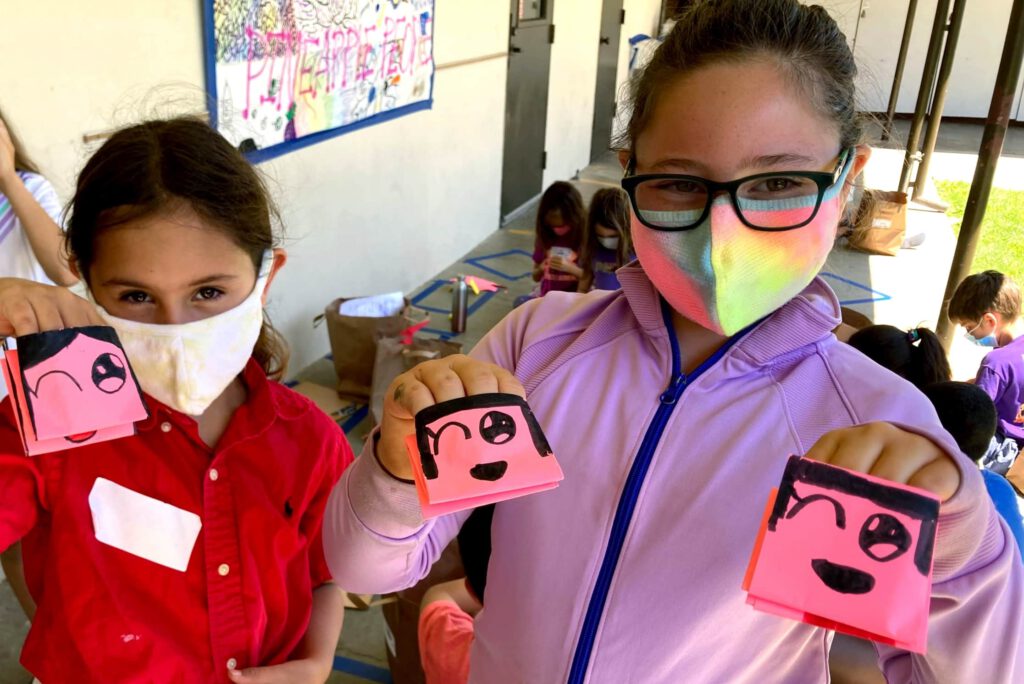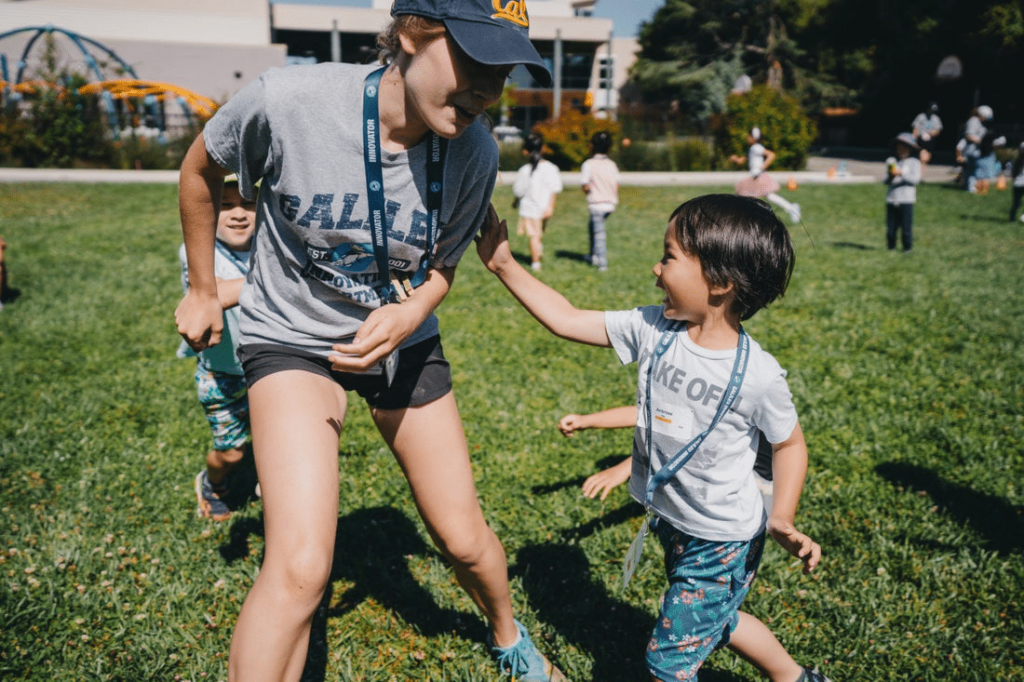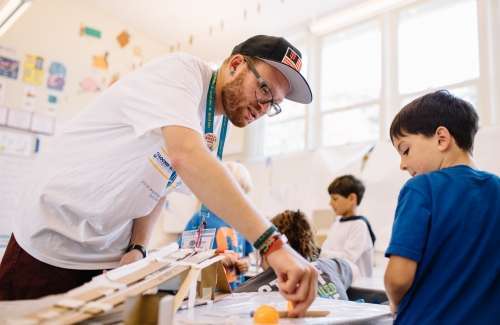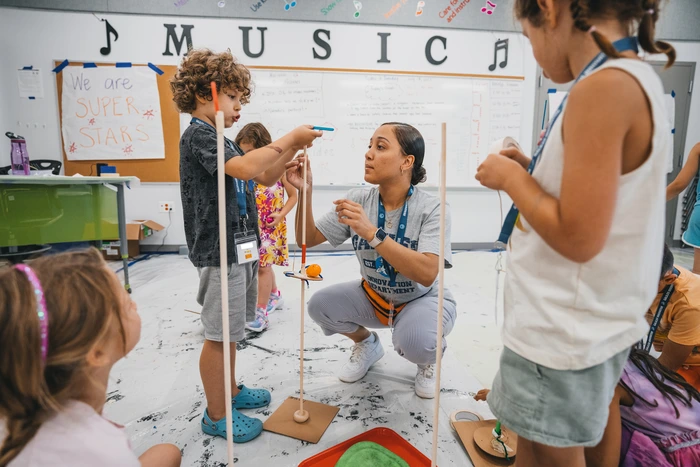A strange buzzword for a strange year, learning pods are sweeping the scene in communities across the country. Are you trying to decide if a learning pod is right for you, or how to begin one of your own? Here’s what you need to know.
What is a Learning Pod?
Born of the Covid-19 pandemic and the resulting impact on schools, learning pods are small, stable groups of children who meet in-person to learn from an instructor with the goals of academic progress and social connection. The families who form the pod commit to shared agreements, such as limiting social contact with families outside of the pod, sharing in the cost of hiring a tutor or nanny, or sharing pod space.
Why Participate in a Learning Pod?
For families whose schools are offering online-only models, as well as for those who don’t feel comfortable sending their children back to school in-person, learning pods offer an opportunity for kids to continue their education in a way that’s more familiar to them—that is, from an educator who is in the same room.
Additionally, learning pods reintroduce school’s social element. In a stable pod, kids can learn and play alongside their peers—something many kids and their families have been missing.
And of course, part of the pod’s appeal is the load it takes off of parents and caregivers. For months, families across the country have felt the strain of juggling work, home life, and in-home school support. With a designated adult in the mix, families can rest assured that their kids are safe, happy, and learning while they focus on a mountain of other must-dos.
How are Learning Pods Used?
The learning pod is an extension—both conceptually and linguistically—of the “pandemic pod,” a colloquialism coined in the months following the onset of Covid-19. These pods originally served as stable play groups to create opportunities for kids to socialize with their peers in a safer environment.
When back-to-school season appeared on the horizon, many families translated the pod concept as they made choices about their children’s education, and the learning pod was born.
Learning pods often revolve around academic subjects like reading and math. Pods can also be used to provide support in a myriad of subjects, from homework help to hands-on enrichment activities to out-and-out play.
How to Form a Learning Pod
While there’s no one way to form a pod, these tips can help you get started.
Hone in on your need.
What level of coverage will you choose? How many days per week would you like your pod to meet, and for how many hours a day?
What subjects do you want to focus on? Maybe you have a voracious reader who could use some support in math. Maybe your kiddo loves to code but needs some serious cajoling to journal. Maybe these kids need some PE, stat. Or maybe you’re looking for across-the-board coverage. Knowing what you’re looking for will make it easier to find families with similar needs.
Find your people.
Make a list of the families with kids you think could be podmates. Consider the following:
- Existing relationships: Think about the families you know through school, extracurricular activities, the neighborhood, and more. Next, think beyond this group. For example, there may be many families at school you don’t yet know. Use social media to your advantage to network with friends of friends and put out feelers in school community groups.
- Age of children: Ideally, learning pods are made up of kids around the same age. A similar developmental baseline will help kids connect socially and set the instructor up to best engage and support the entire group.
- Geographic proximity: Look for folks who live nearby. This will make drop-off and pick-up endlessly more sustainable.
- Philosophy: Based on what you know, do your best to anticipate how aligned other families will be with the safety and program components that feel important to you.
Once you have your list, it’s time to start reaching out. Call or email families one-on-one to introduce the idea. Be sure to allow enough time for your conversation, as you may both have questions for one another.
Align on shared commitments.
What will your pod ask of one another? Consider topics like health checks, mask use, hand washing, drop-off and pick-up processes, cleaning, socializing outside of the pod, local public health guidelines, and what to do if symptoms occur.
Have a shared conversation between all the families in your pod to get clear on your commitments to one another. Write them down and make sure that all adults have a copy.
When your pod is all set, talk to your kids about what you’re doing to keep them safe, and what they’ll do to keep the other families safe too.
Select a space.
Selecting a consistent meeting space for your pod can help set you up for success. This eases the strain of all families for maintaining a dedicated space, reduces logistical headaches, and helps build structure and consistency for all learners in the pod.
Weather and air quality permitting, outdoor spaces are preferred from a health and safety perspective. Do any families in your pod have a backyard, porch, or patio space they can offer up?
Keep in mind that the family who offers the space carries the burden of hosting and cleaning. While there’s no book on learning pod etiquette (yet), it’s both polite and compassionate to give this family some extra weight in setting group expectations and is the ultimate decision-maker on how the space is used.
Find the right fit.
Will you find an instructor on your own or work through a company or organization that matches families and educators? Being clear on the needs of your entire pod will help you make a decision that feels comfortable for everyone.
There’s No Place Like (At) Home.
During days filled with distance learning, kids are eager to use their brains and bodies in different ways. That’s where Galileo At Home comes in. All the joyful learning of Camp Galileo in your own (or your pod buddy’s) backyard, Galileo At Home serves up hours of fun, enriching activities that build innovation skills and boost kids’ creative confidence—all while giving their grown-ups a much-deserved break. Learn more about the limited-availability sessions here.





